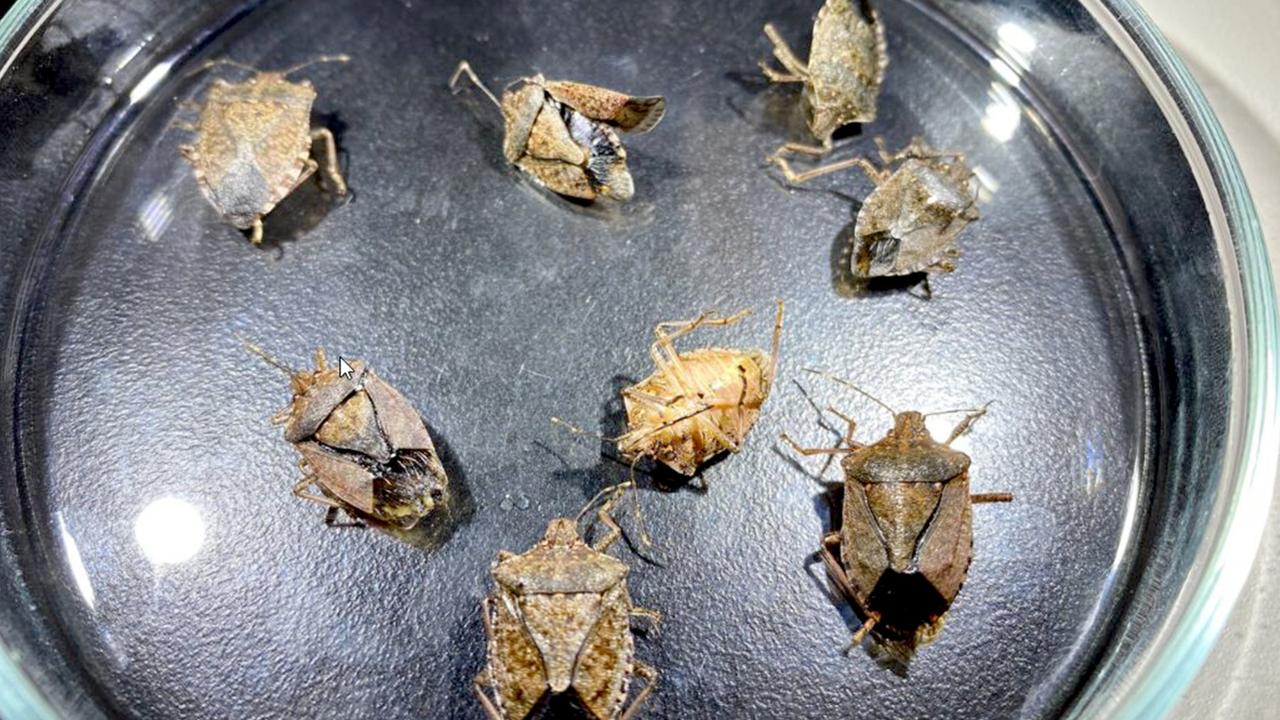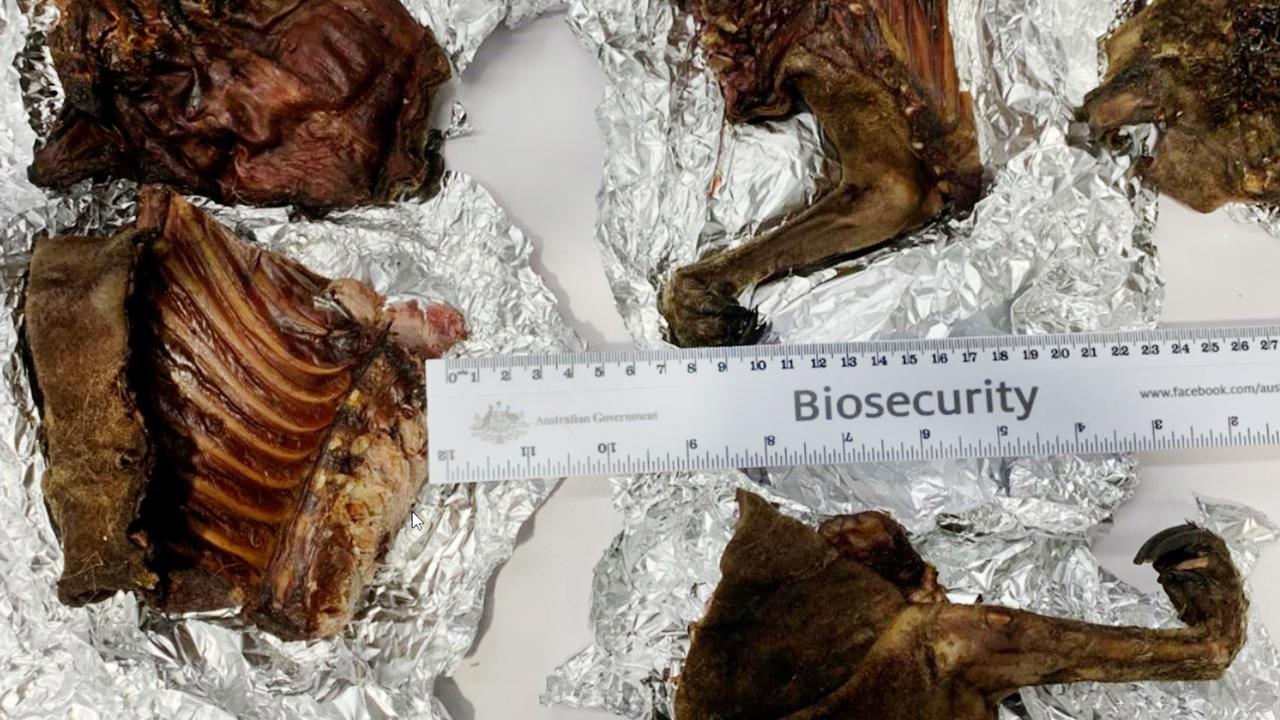Shocking biosecurity risks stopped at Australia’s borders
Frontline biosecurity workers have revealed the litany of exotic creatures and products that have almost made it across Australia’s borders over the past year.
QLD News
Don't miss out on the headlines from QLD News. Followed categories will be added to My News.
Live leaches, a cricket bat infested with borers and an exotic stink bug which could devastate crops and put at risk Australia’s “way of life”, are among the strangest and most dangerous oddities stopped at the nation’s borders last year.
Australia has been ramping up its biosecurity efforts in a bid to prevent an outbreak of foot-and-mouth disease in Indonesia from reaching its shores and devastating the $70 billion agriculture industry.
But its frontline officers have also picked up an array of unusual items at airports and mail centres across the country in 2022.

Among the most dangerous threats was a spate of brown marmorated stink bug which, measuring up at just 17mm, are a major threat not just to Australian farmers but potentially a “smelly nuisance” if it gets a foothold in Australia.
The exotic stink bug, found in Asia, North and South America and Europe, was detected in airports at Sydney, Melbourne and Perth and a mail centre in Brisbane in October and November last year, according to the Department of Agriculture, Fisheries and Forestry.
The department warned that the bug eats over 300 agricultural and other plant species, can devastate crops, be a nuisance in homes and would put “our way of life” at risk.
Other notable finds stopped by biosecurity officers last year included; a whole leg of ham with the hoof still attached, live leeches, and a cricket bat with live borers, all in Sydney between March and June.

There was also hunks of wallaby meat intercepted at the Brisbane international airport in May and khapra beetle larva detected on cardamom pods in Sydney’s international airport in August.
Agriculture Minister Murray Watt said a lot of work had been done to strengthen biosecurity, particularly with foot-and-mouth disease and lumpy skin disease at the nation’s border.
“The spread of diseases like foot and mouth and lumpy skin disease in neighbouring countries has been a strong reminder of why vigilant biosecurity is so important,” Senator Watt said.
“That’s why the Albanese Government has banned meat products for personal use from countries with FMD, and made penalties tougher.”
Senator Watt warned that Australians who are travelling or ordering goods from overseas should check what can and cannot be brought into Australia, or face consequences.
“This government will not tolerate behaviour that jeopardises Australia’s agricultural industries, our food supply chain, and our unique way of life,” he said.




